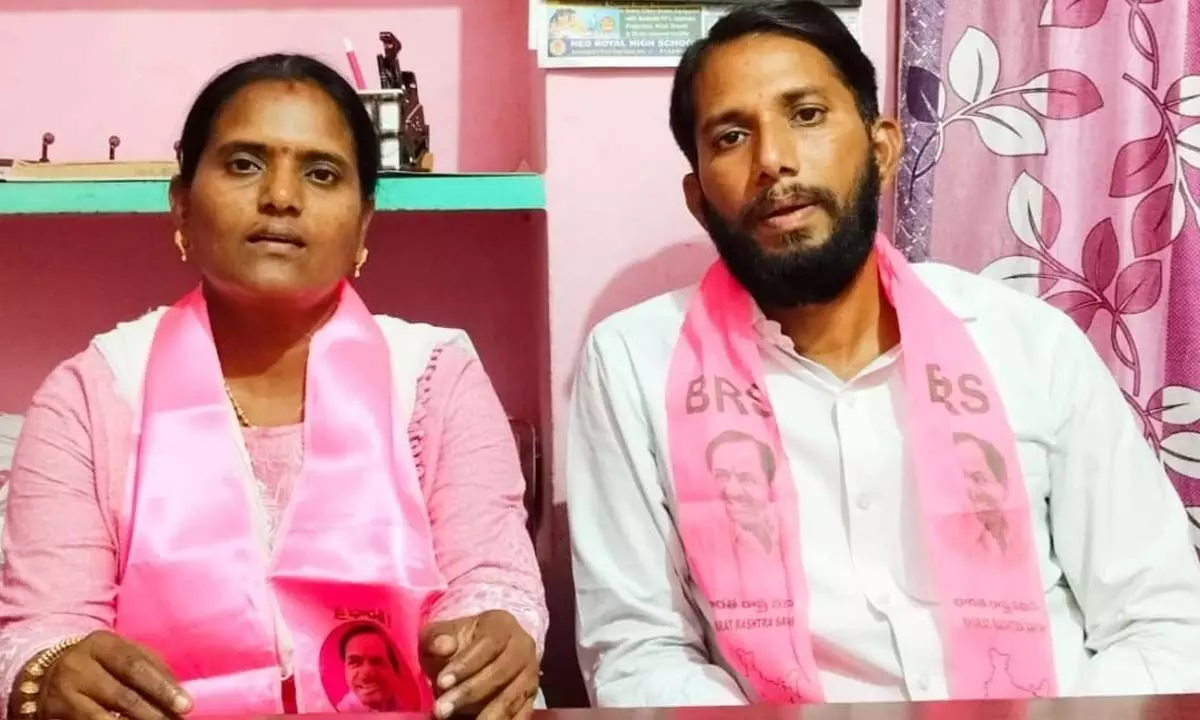Live
- Congress' Belagavi session: Country facing several issues, says KC Venugopal
- 4th Test: Bumrah leads India’s fightback as Smith’s 68 not out takes Australia to 311/6
- Lalu Prasad slams Nitish govt for lathi-charge on BPSC candidates
- Telugu cinema rings in 2025 with the re-release of classic hits
- 5-yr survival rate for cancer patients in S. Korea reaches 72.9 pc: Report
- HIL: Looking forward to contributing to Soorma's success, says Harmanpreet Singh
- South Korea: National Assembly set to vote on appointment of 3 Constitutional Court judge nominees
- Electronics goods emerge as fastest growing segment in India's exports
- CM Revanth Reddy Announces Ban on Benefit Shows, Urges Tollywood to Prioritize Social Responsibility
- RG Kar case: Police deny permission for extension of protest by doctors
Just In

Premalatha Pallayya, a prominent leader of the BRS Party in the Alampur constituency, held a press conference at her office in Iza Mandal Center. She strongly condemned the police for allegedly using third-degree torture on a Dalit woman to coerce a confession for theft.
Gadwal: Premalatha Pallayya, a prominent leader of the BRS Party in the Alampur constituency, held a press conference at her office in Iza Mandal Center. She strongly condemned the police for allegedly using third-degree torture on a Dalit woman to coerce a confession for theft. This incident has raised serious questions about police brutality, gender-based violence, and the treatment of marginalized communities in Telangana.
Key Points of Condemnation Premalatha Pallayya's statements highlight several critical issues:
She expressed shock and outrage at the severity of the police actions, emphasizing that such brutality towards a Dalit woman is unacceptable.
The use of third-degree torture, a method involving extreme physical and psychological abuse, is seen as particularly heinous and indicative of systemic issues within law enforcement.
Pallayya questioned the current governance, specifically targeting the Congress-led administration.
She contrasted the ideals of Indiramma's governance with the current state of democracy, suggesting a significant deviation from expected norms and principles.
The physical abuse, including beatings with boots and humiliation in front of the victim's son, was described as a gross violation of human rights. Prema Latha stressed that such inhumane behavior, especially towards women, reflects poorly on the society and governance structures in place.
She highlighted the broader issue of violence against women in the state, noting that women face various forms of violence, including rape, insults, and physical assaults.
The role of the police, who are supposed to protect citizens, in perpetuating this violence was particularly condemned.
Prema Latha demanded immediate legal action against the police officers involved, specifically calling for charges under SC/ST Atrocity laws.
She insisted on strict punitive measures to ensure justice for the victim and to set a precedent against such misconduct.
The BRS leader criticized the Chief Minister and the Congress government for their alleged disrespect and mistreatment of women.
She suggested that the government’s actions and attitudes towards women and marginalized communities would not be forgiven by the people of Telangana.
This incident and Prema Latha 's response have broader social and political implications:
The use of third-degree torture raises serious human rights concerns, highlighting the need for police reforms and better oversight mechanisms.
Such incidents damage public trust in law enforcement and governance, necessitating urgent corrective actions.
- The case underscores the intersectional vulnerabilities of Dalit women, who face compounded discrimination based on both gender and caste.
Addressing these issues requires a comprehensive approach that includes legal, social, and educational interventions.
Prema Latha’s statements put pressure on the Congress-led government to take responsibility and address the systemic issues within the police force.
Political leaders are called upon to set an example in respecting and upholding the rights and dignity of all citizens, especially marginalized groups.
Such high-profile condemnations can galvanize public sentiment and lead to greater mobilization around issues of police brutality and social justice. The involvement of political leaders like Prema Latha can amplify the voices of victims and advocates, pushing for meaningful change.
Premalatha Pallayya’s condemnation of the police brutality against a Dalit woman reflects deep-seated issues within the law enforcement and governance systems in Telangana. Her statements highlight the urgent need for accountability, reforms, and a shift in societal attitudes towards women and marginalized communities. This incident serves as a critical reminder of the ongoing struggles for human rights and justice, demanding immediate and sustained action from both political leaders and civil society.

© 2024 Hyderabad Media House Limited/The Hans India. All rights reserved. Powered by hocalwire.com







